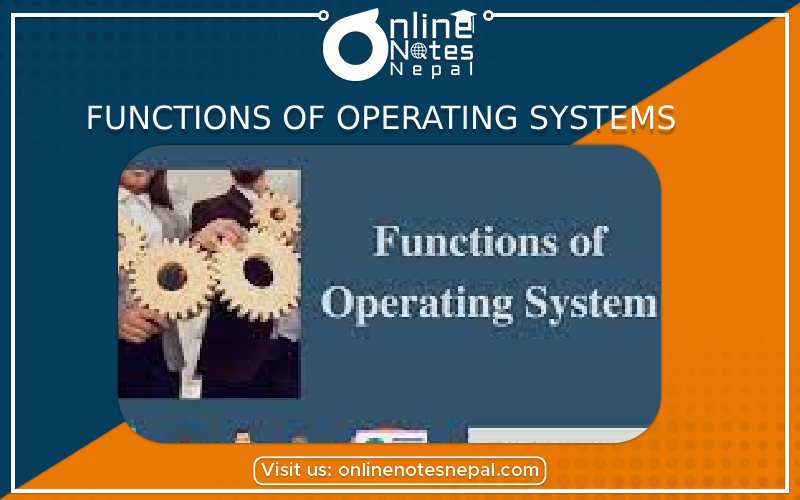Published by: Anu Poudeli
Published date: 31 Jul 2023

Operating systems (OS) are critical pieces of software that govern computer hardware and serve as a foundation for other software programs to run on. They operate as bridges between hardware and software, allowing users to efficiently communicate with computers. Operating systems conduct a variety of responsibilities to ensure smooth functioning and effective resource consumption. Here are some of the most important features of operating systems:
1.Process Management: Managing processes, which are instances of running programs, is one of the primary functions of an operating system. The operating system schedules processes to make the best use of the CPU, switches between them, and controls process synchronization and communication.
2.Memory Management: Operating systems are in charge of managing the memory hierarchy of a computer, which comprises RAM (Random Access Memory) and virtual memory. They assign and delegate memory to processes.
3.File System Management: The operating system provides file system services, which allow users and applications to organize, store, and retrieve data from storage devices. It is in charge of managing file permissions, directories, and storage allocation.
4.Device management : Operating systems manage interactions with hardware devices such as printers, disk drives, keyboards, and network adapters. They provide device drivers that let hardware and software to communicate, allowing applications to utilize hardware resources without having to know precise specifics about them.
5.User Interface: To interact with the computer, operating systems provide user interfaces. These might take the form of command-line interfaces (CLI) or graphical user interfaces (GUI). Users can use the user interface to launch applications, manage files, modify settings, and do other operations.
6.Security: The operating system is critical in ensuring the system's security. It handles user accounts and permissions, enforces access rules, and protects against unwanted access and malicious malware.
7.Network Communication : Operating systems facilitate network connection by supplying networking protocols and services. They handle network data transfer and network connection management.
8.Handling Interrupts: When hardware devices require rapid attention, they send interrupts to the operating system. The operating system manages these interrupts and instructs the CPU on how to respond to them.
9.Resource Allocation : Operating systems allocate system resources (such as CPU time, memory, and network bandwidth) among competing tasks in order to maximize overall system performance and ensure equitable resource sharing.
10.Error Handling: The operating system monitors system health and detects errors or unusual conditions. It takes corrective actions to avoid system crashes and, where possible, strives to recover from faults.
11.Virtualization: Virtualization is supported by many modern operating systems, allowing many virtual machines or containers to run on a single physical machine, allowing for greater resource usage and isolation of diverse workloads.
12.Power Management: Operating systems incorporate power-saving technologies in devices such as laptops and mobile phones to improve energy usage and battery life.
Overall, an operating system's functions are diverse and important in delivering a stable, secure, and user-friendly computer environment for both individual users and enterprises.